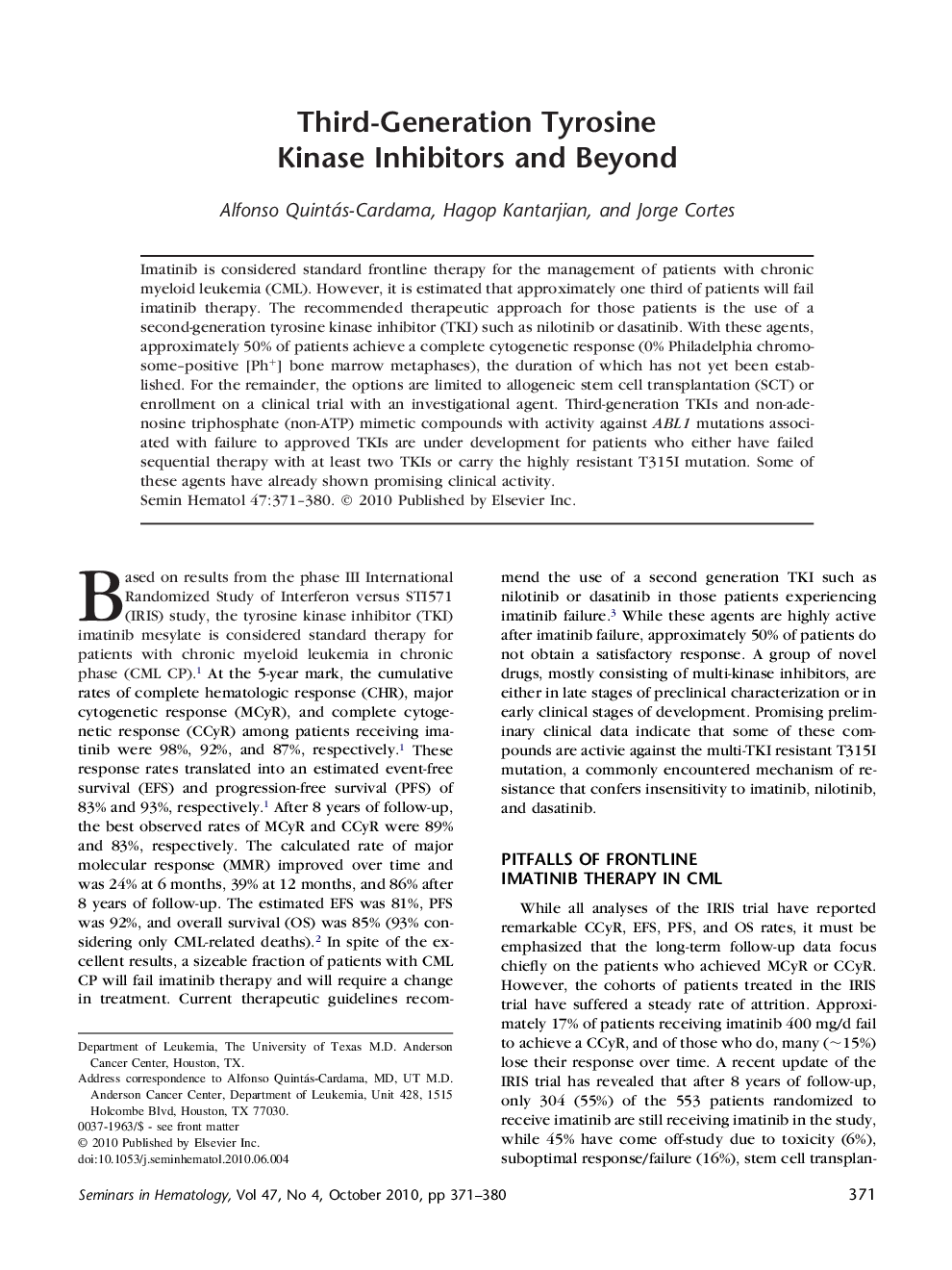| Article ID | Journal | Published Year | Pages | File Type |
|---|---|---|---|---|
| 3333711 | Seminars in Hematology | 2010 | 10 Pages |
Imatinib is considered standard frontline therapy for the management of patients with chronic myeloid leukemia (CML). However, it is estimated that approximately one third of patients will fail imatinib therapy. The recommended therapeutic approach for those patients is the use of a second-generation tyrosine kinase inhibitor (TKI) such as nilotinib or dasatinib. With these agents, approximately 50% of patients achieve a complete cytogenetic response (0% Philadelphia chromosome–positive [Ph+] bone marrow metaphases), the duration of which has not yet been established. For the remainder, the options are limited to allogeneic stem cell transplantation (SCT) or enrollment on a clinical trial with an investigational agent. Third-generation TKIs and non-adenosine triphosphate (non-ATP) mimetic compounds with activity against ABL1 mutations associated with failure to approved TKIs are under development for patients who either have failed sequential therapy with at least two TKIs or carry the highly resistant T315I mutation. Some of these agents have already shown promising clinical activity.
